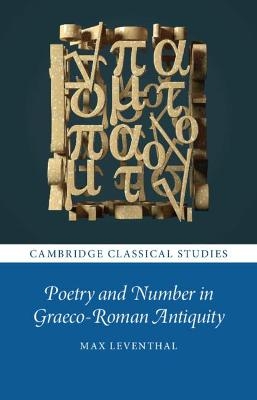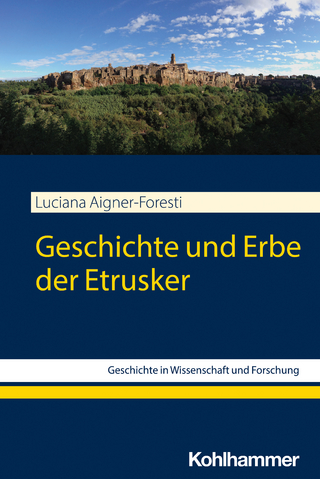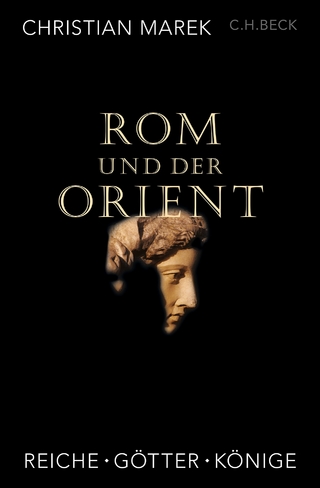
Poetry and Number in Graeco-Roman Antiquity
Seiten
2022
Cambridge University Press (Verlag)
978-1-009-12304-4 (ISBN)
Cambridge University Press (Verlag)
978-1-009-12304-4 (ISBN)
Ranges widely across Greek and Latin poetry to demonstrate the various roles played by number and how the treatment of counting and arithmetic was bound up with wider conceptions of the nature of poetry. Aimed at both classicists and those interested in the cultural history of mathematics.
Poetry and mathematics might seem to be worlds apart. Nevertheless, a number of Greek and Roman poets incorporated counting and calculation within their verses. Setting the work of authors such as Callimachus, Catullus and Archimedes in dialogue with the less well-known isopsephic epigrams of Leonides of Alexandria and the anonymous arithmetical poems preserved in the Palatine Anthology, the book reveals the various roles that number played in ancient poetry. Focussing especially on counting and arithmetic, Max Leventhal demonstrates how the discussion, rejection or enacting of these two operations was bound up with wider conceptions of the nature of poetry. Practices of composing, reading, interpreting and critiquing poetry emerge in these texts as having a numerical component. The result is an illuminating new way of approaching Greek and Latin poetry – and one that reaches across modern disciplinary divisions.
Poetry and mathematics might seem to be worlds apart. Nevertheless, a number of Greek and Roman poets incorporated counting and calculation within their verses. Setting the work of authors such as Callimachus, Catullus and Archimedes in dialogue with the less well-known isopsephic epigrams of Leonides of Alexandria and the anonymous arithmetical poems preserved in the Palatine Anthology, the book reveals the various roles that number played in ancient poetry. Focussing especially on counting and arithmetic, Max Leventhal demonstrates how the discussion, rejection or enacting of these two operations was bound up with wider conceptions of the nature of poetry. Practices of composing, reading, interpreting and critiquing poetry emerge in these texts as having a numerical component. The result is an illuminating new way of approaching Greek and Latin poetry – and one that reaches across modern disciplinary divisions.
Max Leventhal is Bye Fellow and College Lecturer in Classics at Downing College, Cambridge. He was previously the Thole Research Fellow at Trinity Hall, Cambridge and a British Academy Postdoctoral Fellow in the Faculty of Classics.
Introduction: Numbers Up; Part I. Counting and Criticism: 1. Callimachus and his Legacy; 2. Leonides of Alexandria's Isopsephic Epigrams; Part II. Arithmetic and Aesthetics: 3. Archimedes' Cattle Problem; 4. The Arithmetical Poems in A.P. 14; Conclusion: Summing Up Poetry.
| Erscheinungsdatum | 22.09.2021 |
|---|---|
| Reihe/Serie | Cambridge Classical Studies |
| Zusatzinfo | Worked examples or Exercises |
| Verlagsort | Cambridge |
| Sprache | englisch |
| Maße | 145 x 228 mm |
| Gewicht | 400 g |
| Themenwelt | Literatur ► Lyrik / Dramatik ► Lyrik / Gedichte |
| Geschichte ► Allgemeine Geschichte ► Altertum / Antike | |
| Geisteswissenschaften ► Philosophie | |
| Geisteswissenschaften ► Sprach- / Literaturwissenschaft ► Anglistik / Amerikanistik | |
| Geisteswissenschaften ► Sprach- / Literaturwissenschaft ► Literaturwissenschaft | |
| ISBN-10 | 1-009-12304-1 / 1009123041 |
| ISBN-13 | 978-1-009-12304-4 / 9781009123044 |
| Zustand | Neuware |
| Informationen gemäß Produktsicherheitsverordnung (GPSR) | |
| Haben Sie eine Frage zum Produkt? |
Mehr entdecken
aus dem Bereich
aus dem Bereich


